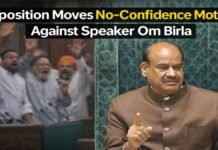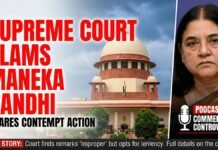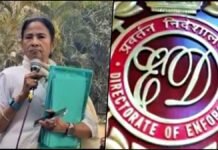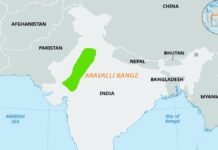
- The Supreme Court on Monday quashed the May 13, 2022 order of another bench of the apex court, which had directed the Gujarat government to consider the application of 11 convicts in the Bilkis Bano gangrape and murder case for premature release under its amnesty policy of July 9, 1992.
- The court said the order was obtained by defrauding the court, as one of the convicts, Radheshyam Shah, had concealed the fact that he had already applied for pardon to the Maharashtra government, which had rejected his plea on the basis of negative recommendations from the CBI and the special judge (CBI), Mumbai.
- The court also said the Gujarat government had no jurisdiction to grant remission to the convicts, as the crime was committed in Maharashtra, where they were tried and convicted by a special court. The court ordered the convicts to surrender within two weeks and serve the remainder of their life sentences.
- The court also expressed its anguish over the brutal gangrape of Bilkis Bano, who was five months pregnant, and the murder of seven of her family members, including her three-year-old daughter, during the 2002 Gujarat riots. The court said the convicts did not deserve any leniency or mercy for their heinous crimes.
New Delhi: The Supreme Court on Monday set aside the May 13, 2022 order of another bench of the apex court, which had directed the Gujarat government to consider the application of 11 convicts in the Bilkis Bano gangrape and murder case for premature release under its amnesty policy of July 9, 1992.
A bench said the order was obtained by defrauding the court, as one of the convicts, Radheshyam Shah, had suppressed the material facts and misled the court about his previous attempts to seek pardon from the Maharashtra government, which had the sole authority to decide on his plea.
The bench said Shah had initially approached the Gujarat High Court in 2019 seeking a direction to consider his pardon application, but the High Court had disposed of his plea stating that he should approach the Maharashtra government, as the crime was committed in Maharashtra, where he was tried and convicted by a special court along with 10 others.
The bench said Shah had filed a second application before the Gujarat High Court in 2020, which was also rejected. However, Shah did not disclose that he had already applied for pardon from the Maharashtra government within 14 days of the July 17, 2019 order of the Gujarat High Court and that his application was rejected on August 28, 2019, by the Maharashtra government on the basis of negative recommendations from the CBI and the special judge (CBI), Mumbai.
The bench said Shah then moved to the Supreme Court but did not mention his rejection by the Maharashtra government in his petition. He also did not implead the Maharashtra government, the CBI or the special judge (CBI) as parties to his case. He only impleaded the Gujarat government, which had no jurisdiction to grant him remission.
The bench said Shah’s petition was heard by another bench of the Supreme Court, comprising Justices Ajay Rastogi (now retired) and Vikram Nath, which passed the order on May 13, 2022, directing the Gujarat government to consider his application for premature release in the context of its amnesty policy of July 9, 1992.
The bench said the order was passed without hearing the Maharashtra government, the CBI or the special judge (CBI), who were the necessary and proper parties to the case. The bench said the order was also passed without considering the gravity and nature of the offence committed by Shah and the other convicts, who were found guilty of gangraping Bilkis Bano, who was five months pregnant, and murdering seven of her family members, including her three-year-old daughter, during the 2002 Gujarat riots.
The bench said the order was based on a wrong assumption that the Gujarat government had the right to decide on the application of the convicts, as the crime was committed in Gujarat. The bench said this was contrary to the facts and the law, as the crime was committed in Maharashtra, where the convicts were tried and convicted by a special court, which had awarded them life imprisonment.
The bench said the order was also contrary to the settled legal position that the power of remission can be exercised only by the state where the offence is committed, the trial is conducted, the conviction is recorded and the sentence is executed.
The bench said the order was obtained by defrauding the court, and hence, it was liable to be quashed. The bench also said the order was an abuse of the process of law, and it violated the principles of natural justice, fair play and transparency.
The bench quashed the order and directed the Gujarat government to withdraw the remission granted to the convicts on the basis of the order. The bench also ordered the convicts to surrender within two weeks and serve the remainder of their life sentences.
SC slams Gujarat govt for abuse of power
The Supreme Court also slammed the Gujarat government for abusing its power and granting remission to convicts without verifying the facts and the law. The court said the Gujarat government had acted in a complicit manner with the convicts and violated the rights of the victim and her family.
The court said the Gujarat government had released the convicts on August 15, 2022, by giving them remission in their punishment, without informing the Maharashtra government, the CBI or the special judge (CBI), who were the concerned authorities in the case.
The court said the Gujarat government had also not informed the Supreme Court about the release of the convicts, despite the fact that several petitions challenging the remission order were pending before the court.
The court said the Gujarat government had also not taken into account the seriousness and brutality of the offence committed by the convicts, who had gangraped Bilkis Bano, who was five months pregnant and murdered seven of her family members, including her three-year-old daughter, during the 2002 Gujarat riots.
The court said the convicts did not deserve any leniency or mercy for their heinous crimes, which had shocked the conscience of the nation and the world. The court said the convicts had shown no remorse or repentance for their actions and had instead tried to evade justice by resorting to fraud and deception.
The court said the Gujarat government had no jurisdiction to grant remission to the convicts, as the crime was committed in Maharashtra, where they were tried and convicted by a special court. The court said the power of remission was a constitutional and statutory power, which had to be exercised with due care and caution, and in accordance with the law and the facts of the case.

The court said the Gujarat government had failed to discharge its constitutional and statutory duty and had acted in a manner that was arbitrary, illegal and unconstitutional. The court said the Gujarat government had also violated the fundamental rights of the victim and her family, who had suffered immense pain and trauma due to the offence and the subsequent release of the convicts.
The court said the Gujarat government had also undermined the rule of law and the administration of justice and had eroded the public confidence and trust in the judicial system. The court said the Gujarat government had also sent a wrong message to society and the world, that the perpetrators of such heinous crimes could get away with impunity and enjoy the benefits of remission.
The court said the Gujarat government had also insulted the dignity and honour of the victim and her family and had shown disrespect and disregard to the Supreme Court, which had upheld the conviction and sentence of the convicts in 2017¹.
The court said the Gujarat government had also acted in contravention of the international obligations and commitments of India, which had ratified the Convention on the Elimination of All Forms of Discrimination against Women (CEDAW) and the Convention against Torture and Other Cruel, Inhuman or Degrading Treatment or Punishment (CAT).
The court said the Gujarat government had also violated the guidelines and directions issued by the Supreme Court in various cases, such as Shatrughan Chauhan vs Union of India², Union of India vs V Sriharan³ and Swamy Shraddananda vs State of Karnataka⁴, which had laid down the principles and parameters for exercising the power of remission.
The court said the Gujarat government had also ignored the recommendations and observations of the National Human Rights Commission (NHRC), which had intervened in the case and had sought justice for the victim and her family.
The court said the Gujarat government had also disregarded the sentiments and feelings of the people of India, who had expressed their outrage and anguish over the release of the convicts and had demanded their return to jail.
The court said the Gujarat government had also dishonoured the spirit and essence of the Constitution of India, which had guaranteed the right to life, liberty, dignity and equality to all its citizens, irrespective of their religion, caste, creed, gender or class.
The court said the Gujarat government had also betrayed the values and ideals of the freedom struggle, which had inspired the nation to attain independence and democracy. The court said the Gujarat government had also tarnished the image and reputation of India, which had emerged as a global leader and a champion of human rights and justice.
The court said the Gujarat government had acted in a manner that was unworthy and unbecoming of a constitutional and democratic government and had abused its power and authority in a flag















































